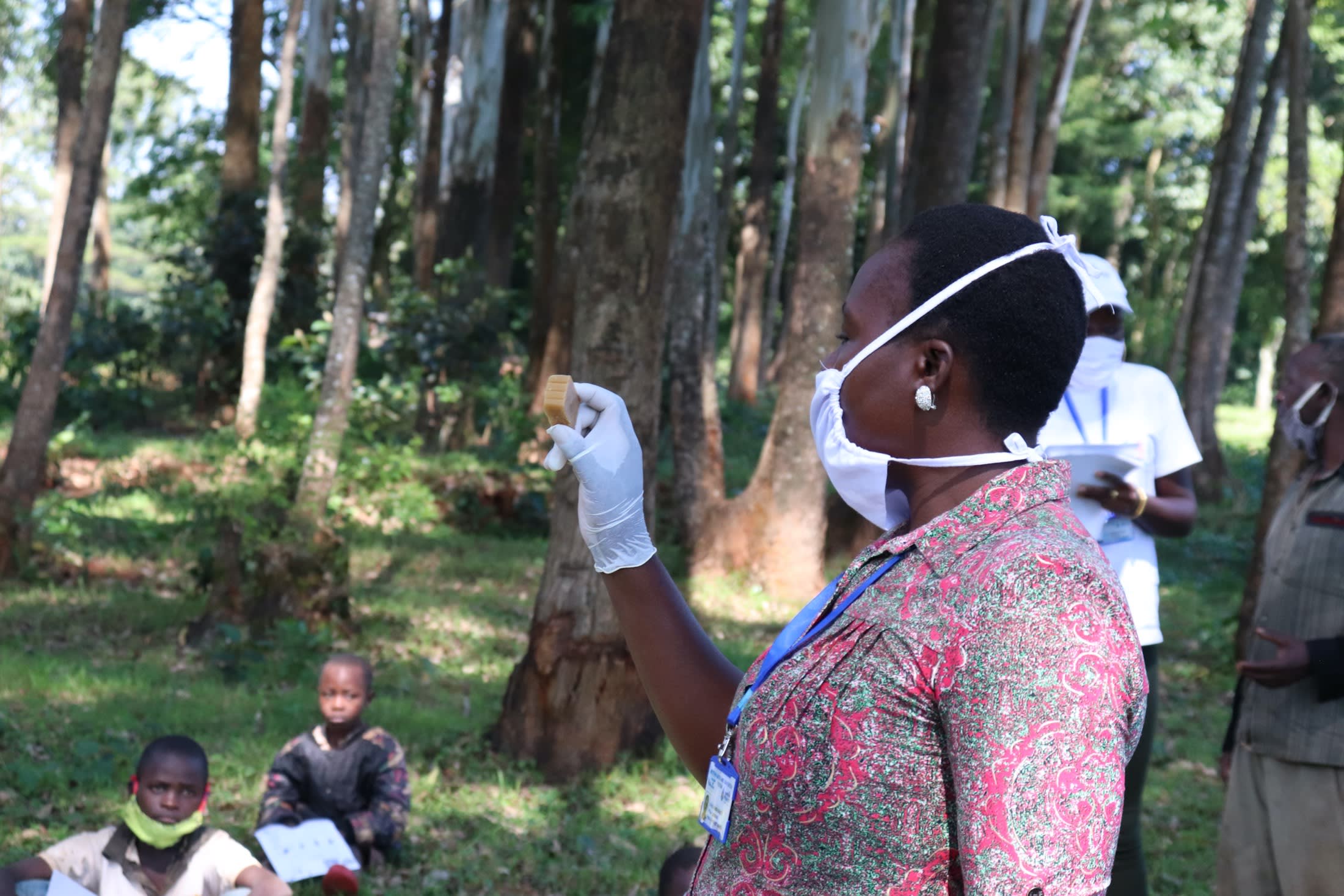A typical morning in Jivovoli Community begins with milking cows, cleaning, preparing children for school, cooking breakfast, and rushing to Magumba Spring to get water.
The spring is in a place that is easily accessible with good terrain, therefore it is very easy for people to reach the water source. Water is gathered by putting containers under an improvised pipe until they get half-filled. People then have to use a small cup to fill up their container the rest of the way.
Getting to the spring and filling up a container of water may be easy, but this water is not safe for consumption. It is visibly dirty since the water pools at the end of the spring which then leaves it open to all sorts of contamination.
People that fetch water from this point have experienced serious diarrhea in the past and the problem is believed to have resulted from drinking contaminated water from Magumba Spring. Community members must then spend money on treatment for the illnesses caused by drinking the water. In the end, people here waste a lot of time and money because of the dirty water from this spring.
"We have longed for this spring to be protected but we continued using the water in its state because we could not afford money for protecting it," said Josphat Amugata, a farmer who relies on the spring to meet his family's needs.
Children miss classes and adults sometimes stay at home due to infections caused by drinking water from the spring. When children miss lessons it leads to poor performance in examinations.
Most people in Jivovoli village are small-scale farmers who grow food crops for their own consumption and a good number of homes have planted tea on their small farms for sale. The village also has a few commercial motorcyclists and rickshaw drivers who earn wages taxiing people around the area.
Jivovoli is a rural area where the voices of community members chatting as they go about their daily activities are heard throughout. The area has trees and crops in farms, and most of the buildings are built with mud walls and roofs made of iron sheets.
On days when everyone is healthy, the adults here will proceed with their mornings by going to work on their farms or pick tea for the nearby Mudete Tea Factory. The children run to school to avoid getting there late and being punished by teachers.
Women usually have to ensure that all domestic chores are carried out and this includes preparing meals like lunch which men and school children come back to eat at lunchtime. Mothers with babies have to tie them on their backs and move around doing all of their daily work with children on their backs.
What we can do:
Spring Protection
Protecting the spring will help provide access to cleaner and safer water. Construction will keep surface runoff and other contaminants out of the water. With the community’s high involvement in the process, there should be a good sense of responsibility and ownership for the new clean water source.
Fetching water is predominantly a task carried out by women and young girls. Protecting the spring and offering training and support will, therefore, help empower the female members of the community by freeing up more of their time and energy to engage and invest in income-generating activities.
Training
Community members will attend hygiene and sanitation training for at least 2 days. This training will ensure participants have the knowledge they need about healthy practices and their importance.
The facilitator plans to use Participatory Hygiene and Sanitation Transformation (PHAST), Community-Led Total Sanitation (CLTS), Asset-Based Community Development (ABCD), group discussions, handouts, and demonstrations at the spring. One of the most important topics we plan to cover is the handling, storage, and treatment of water. Having a clean water source will be extremely helpful, but it is useless if water gets contaminated by the time it is consumed. We will also emphasize the importance of handwashing.
Training will result in the formation of a committee that will oversee the operations and maintenance of the spring. They will enforce proper behavior around the spring and delegate tasks that will help preserve the site, such as building a fence and digging proper drainage channels. The fence will keep out destructive animals, and the drainage will keep the area’s mosquito population at a minimum.
Sanitation Platforms
On the final day of training, participants will select 5 families that should benefit from new concrete latrine floors. Training will inform the community and selected families on what they need to contribute to make this project a success. They must mobilize locally available materials, including bricks, clean sand, and gravel. The 5 families chosen for sanitation platforms must prepare by sinking a pit for the sanitation platforms to be placed over. All community members must work together to make sure that accommodations and food are always provided for the work teams.

 Protected Spring
Protected Spring
 Rehabilitation Project
Rehabilitation Project








































